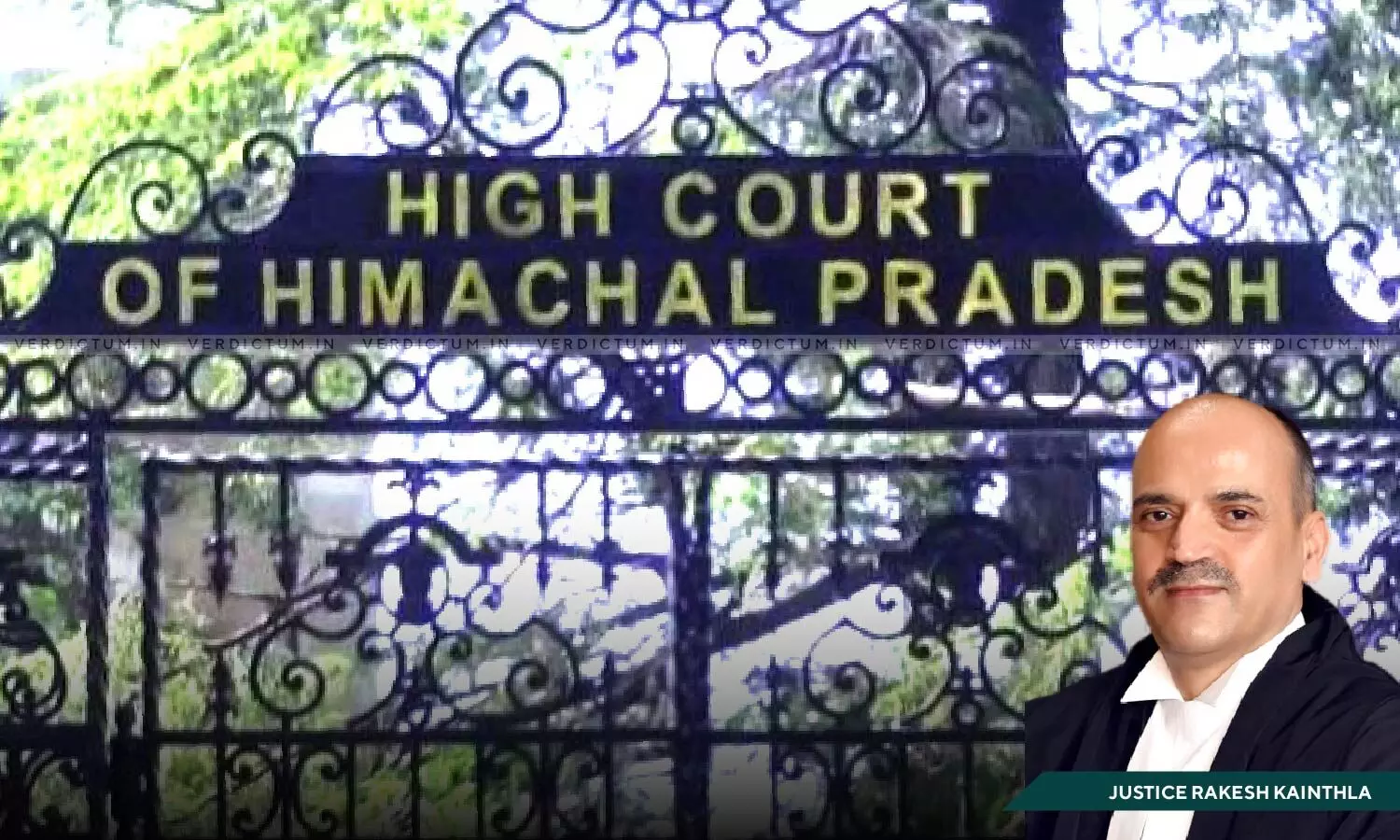
Justice Rakesh Kainthla, Himachal Pradesh High Court
Caste Assigned By Birth, Not Altered By Marriage: Himachal Pradesh High Court
 |
|The State challenged a ruling that exempted an accused under the SC & ST Act due to marriage into a Scheduled Caste.
The Himachal Pradesh High Court observed that a person’s caste is determined by birth and does not change through marriage.
A criminal revision petition was filed by the State, challenging a Trial Court's ruling that a woman accused under the Scheduled Castes and the Scheduled Tribes (Prevention of Atrocities) Act, 1989 (commonly referred to as the SC & ST Act) could not be prosecuted under the Act because she had married into a Scheduled Caste (SC) family.
A Bench of Justice Rakesh Kainthla held, “Therefore, it was rightly submitted on behalf of the State that the Caste is assigned to a person at birth and does not change during the lifetime of a person. Therefore, it was wrongly held by the learned Trial Court that the respondent-accused would become a member of the Scheduled Caste after her marriage and she cannot commit an offence punishable under Section 3(1)(s) of the SC & ST Act.”
Additional Advocate General Lokender Kutlehria appeared for the Petitioner and Advocate Y.P. Sood appeared for the Respondent.
The Trial Court had reasoned that since the respondent-accused had married a person who belonged to the Scheduled Caste, she herself had become a member of that community. Based on that presumption, it concluded that she could not be held liable under Section 3(1)(s) of the SC & ST Act, which punishes a non-SC/ST person for intentionally insulting or abusing an SC/ST person by caste name in any place within public view.
However, the High Court disagreed with this reasoning. The Court pointed out that the statutory protection under Section 3(1)(s) is meant to protect SC/ST individuals from abuse and humiliation by those who are not members of these communities. Therefore, the identity of the accused—as someone who was not born into a Scheduled Caste was critical to the applicability of this provision.
The Court emphasized that caste cannot be altered by personal circumstances such as marriage. Accordingly, the High Court held that the Trial Court erred in concluding that the accused’s marital status granted her Scheduled Caste status, thereby shielding her from being charged under the Act.
Consequently, the High Court set aside the Trial Court's order and remanded the case for a fresh consideration regarding the framing of charges or the decision on discharge.
Cause Title: State of Himachal Pradesh v. Sarojioni, [2025:HHC:24439]